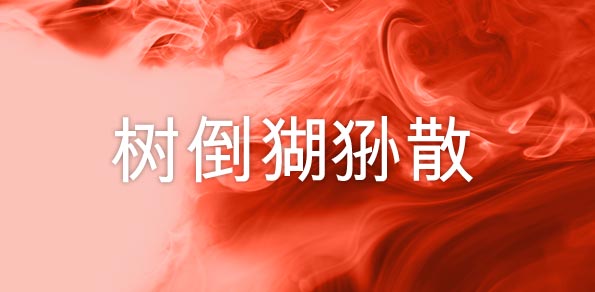Chinese proverbs, you could spend an age reading the short stanzas whilst contemplating the meaning and being humbled by the wisdom of an ancient culture that has fashioned, reduced and compartmentalised certain life events into short dynamic phrases.
Visions of Yoda like Chinese overlords, reverently musing their economic pearls of wisdom, in quiet whispers to an assembly of mandarins, whilst seated on ornate high backed gilded chairs in the shadows of incense lit darkened rooms are easily imagined. These pearls of wisdom then become policy, entrapping the other players in the game, gently persuading the opponent to submit to their intellectual as opposed to physical might..
Whether or not the Chinese are playing a short game, a long game, or any game at all it’s impossible to escape the feeling and belief that economically, culturally and in terms of intelligent game play we are (in Europe and the USA) completely out of our economic depth if trying to ‘compete’ with China.
Various market commentators and respected economists have resolutely claimed that the Chinese have finally had their tables turned, that they also need the USA consumerist beast to grow otherwise their own economic growth will be choked off, or that in holding circa $1 trillion of USA treasury debt it’s actually the Chinese who are ‘in the pickle’ and not the USA. However, these claims often emanate from the USA whose current administration, in the form of Deputy President Joe Biden, showed enough humility during a recent diplomatic visit to Beijing to illustrate their concerns and to know their place. The claims of ultimate Chinese policy failure also come from well connected hedge funds with plenty of ‘skin in the game’.
News today has emerged that the Bank of China, a big market-maker in China’s onshore foreign exchange market, has stopped foreign exchange forwards and swaps trading with several European banks due to the unfolding debt crisis in Europe, three sources with direct knowledge of the matter told Reuters on Tuesday. The European banks include French lenders Societe Generale, Credit Agricole and BNP Paribas, and Bank of China halted trading with them partly because of the downgrading from Moody’s, the sources said. Another Chinese bank said it had stopped trading yuan interest rate swaps with European banks. Contacted about this move by the Chinese banks, spokespeople for Societe Generale, UBS and BNP Paribas declined to comment. Credit Agricole was not reachable for comment.
Bank of China has also stopped trading with UBS in the wake of that bank’s $2.3 billion loss from a rogue trading scandal. Banks in Asia and elsewhere have been cutting credit lines and exposure to European banks during the past few months, unwilling to take on the risk of a default by Greece, or any other peripheral European country.
This action by China should not be under estimated. Whether or not China’s overtures towards the Eurozone economy over the past fortnight were genuine, or whether (in a desperate attempt to buy time) the rumour of Chinese support for the Euro came from the spin factory of Italy’s inner circle of government is irrelevant. What is highly relevant is that China, through the bank of China, has ‘spoken’ and policy makers should be under no illusion as to the severity and importance of this snub. Both diplomatically and economically it’s a massive blow.
Amongst the iconoclastic and contrarian viewpoints versus China’s permanent dominance sits the hedge fund manager Hugh Hendry whose Eclectica fund has exploded in value over the past two months as global markets have plummeted and industry peers have suffered massive financial collateral damage. Hendry’s opinion on China is no secret, he anticipates a 1920’s Japan-like crash in China and has skin in the game in terms of his Chinese puts. Back in May 2011 Hendry gave an interview with Business Week in which he suggested that there were striking parallels with Japan in the 1920s, when ultimately the whole system collapsed. China could, in his considered opinion, precipitate a much greater crisis elsewhere in the world. Hendry’s flagship Eclectica Fund, a global macro hedge fund with $180 million in assets, may gain circa $500 million from its options if China’s economy plunges into a recession.
Hendry believes that China’s vulnerability to a crash comes from their “inherent instability” created by a lending binge for infrastructure projects that’s “unprecedented in 400 years of economic history”. The country is also exposed to exports to a U.S. economy that could shrink from $14.6 trillion at the end of March to $10 trillion within 10 years, he said.
“China’s at the mercy of a credit bubble. Once you’ve unleashed the genie it’s out there. They are ultimately unstable and it’s that instability that creates their demise.” Hendry predicts that China’s bubble may burst within a year, or it may take three years, he cites Citigroup Inc. economists Willem Buiter and Shen Minggao as fellow advocates of his theory. Given that the Hang Seng is currently down circa 13.5% year on year Hendry could be proved right..But then those proverbs hit you…
[typography font=”IM Fell DW Pica” size=”18″ size_format=”px” color=”#c70626″]冰 凍 三 尺 非 一 日 之 寒
A single day of sub-zero temperature is not enough to create three feet of ice.[/typography]
[typography font=”IM Fell DW Pica” size=”18″ size_format=”px” color=”#8f031a”]熊瞎子摘苞米,摘一个丢一个
Blind bear picks corn, picks one and drops one.[/typography]






Comments are closed.